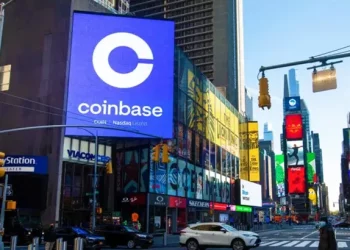Cryptocurrency trading has evolved into a dynamic and rapidly growing sector, with numerous exchanges offering a variety of services to traders and investors. Among the most popular platforms globally is Binance, which is widely recognized for its diverse range of cryptocurrencies and trading pairs, low fees, and advanced trading features. However, for residents of the United States, the question of whether Binance is available and legally compliant remains a significant concern. This article explores the legal and regulatory framework surrounding the use of Binance by US residents, highlighting the challenges, alternatives, and the overall landscape of cryptocurrency trading within the United States.
What Is Binance and Why Is It Popular?
Binance is one of the largest cryptocurrency exchanges in the world in terms of trading volume. Founded in 2017 by Changpeng Zhao (CZ), Binance quickly became a prominent player in the crypto space by offering a vast array of digital assets, from well-known cryptocurrencies like Bitcoin (BTC) and Ethereum (ETH) to numerous altcoins. Binance also offers advanced trading features, including spot trading, futures, margin trading, staking, and decentralized finance (DeFi) services, making it an attractive platform for both novice and experienced traders.
Binance’s appeal stems not only from its diverse offering but also from its relatively low fees. The exchange uses its native Binance Coin (BNB) as a utility token that allows users to reduce their trading fees further. Additionally, Binance supports a wide range of payment methods, including fiat-to-crypto conversions and the option to trade in several local currencies, enhancing its accessibility.
However, as Binance has grown in prominence, so has its regulatory scrutiny, especially in the United States. This scrutiny raises important questions regarding the ability of US residents to use Binance and whether they are subject to legal restrictions when trading on the platform.
Can US Residents Use Binance?
To answer the question directly: US residents cannot use Binance.com, the global version of the platform. This is because Binance has encountered significant regulatory challenges in the United States, which led the company to restrict its services to US users on its global platform.
In 2019, Binance announced that it would stop providing services to US residents through its main platform due to regulatory concerns. Subsequently, Binance launched Binance.US, a separate, compliant platform specifically designed for US customers. Binance.US operates independently from the global Binance exchange and is subject to the regulations enforced by US authorities, including the Securities and Exchange Commission (SEC) and the Commodity Futures Trading Commission (CFTC).
Why Can’t US Residents Use Binance.com?
Several reasons explain why US residents cannot use Binance.com and must use Binance.US if they wish to access Binance services. These reasons are primarily rooted in regulatory compliance and legal issues.
1. US Regulatory Environment
The United States has a complex regulatory framework for cryptocurrency exchanges. Key regulatory bodies, such as the Securities and Exchange Commission (SEC), the Commodity Futures Trading Commission (CFTC), and the Financial Crimes Enforcement Network (FinCEN), all have their own regulations governing digital assets.
US regulators are concerned about the classification of cryptocurrencies and how they should be regulated. The SEC, for example, views certain cryptocurrencies as securities and has indicated that exchanges listing these assets must register with the SEC. Binance, in its global form, was not registered with US regulators, which prompted legal challenges and investigations by the SEC, CFTC, and other agencies.
2. Anti-Money Laundering (AML) and Know Your Customer (KYC) Requirements
Binance was also accused of not adhering to strict Anti-Money Laundering (AML) and Know Your Customer (KYC) requirements in the US. These regulations require financial institutions and exchanges to verify the identities of their customers to prevent illicit activities such as money laundering and terrorism financing.
US regulators and authorities were concerned that Binance, as a global platform, lacked sufficient measures to comply with AML and KYC regulations. In response to this, Binance.US was created to operate under strict compliance guidelines in accordance with US law.
3. Compliance with State Laws
In addition to federal regulations, cryptocurrency exchanges in the US must also comply with state-specific regulations. Different states have different requirements for operating cryptocurrency exchanges, which further complicates the situation for a global exchange like Binance. Binance.US operates under a framework that ensures compliance with these state-specific laws, unlike the global Binance platform.
4. Legal Actions Against Binance
Several legal actions and investigations have been launched against Binance by US authorities. In 2021, the CFTC began investigating Binance for offering trading in digital assets that are considered commodities (like Bitcoin and Ethereum) without proper registration. The SEC also increased its scrutiny of Binance’s operations in the US, questioning whether the exchange violated securities laws by offering unregistered securities to US investors.
In response to these legal challenges, Binance made the strategic decision to restrict US users from accessing its global platform and instead launched Binance.US to provide a legally compliant alternative for American residents.
What Are the Alternatives for US Residents?
While US residents cannot use Binance.com, they still have access to Binance.US, a platform that offers many of the same services but with key differences designed to comply with US regulations.
1. Binance.US
Binance.US provides a scaled-back version of the Binance experience, but it still offers a wide range of cryptocurrencies for trading, including popular assets like Bitcoin, Ethereum, and Binance Coin (BNB). The platform also supports fiat-to-crypto trading, allowing users to buy digital assets with US dollars.
Some key features of Binance.US include:
Lower selection of cryptocurrencies: While Binance.com offers thousands of cryptocurrencies, Binance.US has a more limited selection due to regulatory concerns.
Fewer advanced trading options: Binance.US does not offer the same advanced trading options as Binance.com, such as futures and margin trading.
Regulatory compliance: Binance.US adheres to US regulatory requirements, including KYC and AML policies, making it a safer and more secure option for US residents.
Binance.US may be a suitable option for US residents who want to trade cryptocurrencies in compliance with US laws. However, if a US resident desires access to a broader range of cryptocurrencies and trading features, they may need to explore alternative exchanges.
2. Other Cryptocurrency Exchanges for US Residents
There are several other cryptocurrency exchanges that US residents can use, which may offer more flexibility and a wider selection of cryptocurrencies than Binance.US. Some of the top alternatives include:
Coinbase: One of the largest and most user-friendly exchanges in the US, Coinbase offers a vast selection of cryptocurrencies and is fully regulated in the US. It provides both basic and advanced trading features, along with a secure platform for buying, selling, and storing digital assets.
Kraken: Known for its robust security measures and wide range of cryptocurrencies, Kraken is another highly reputable exchange in the US. It also offers advanced trading features, including futures and margin trading.
Gemini: Based in the US, Gemini is a fully regulated exchange that provides a secure platform for buying, selling, and storing cryptocurrencies. It has a reputation for compliance and is licensed in most US states.
eToro: eToro is a global trading platform that allows US residents to trade both cryptocurrencies and traditional assets like stocks. It is regulated in the US and offers a social trading feature that lets users copy the trades of experienced investors.
Bitstamp: Bitstamp is one of the longest-standing exchanges in the crypto space and is known for its low fees and reliable service. It operates in the US and is fully compliant with US regulations.
3. Decentralized Exchanges (DEXs)
For more experienced traders, decentralized exchanges (DEXs) offer an alternative to centralized platforms like Binance. DEXs operate on blockchain networks, allowing users to trade cryptocurrencies directly with one another without the need for an intermediary. Popular DEXs include:
- Uniswap
- Sushiswap
- PancakeSwap
While DEXs offer more privacy and fewer regulatory restrictions, they also come with higher risks, including the potential for fraud and less customer support.
The Future of Binance in the US
Binance’s ability to operate in the US remains uncertain due to ongoing regulatory challenges. However, the launch of Binance.US shows that Binance is committed to maintaining a presence in the US market by adhering to local laws and regulations. As the regulatory landscape for cryptocurrencies in the US continues to evolve, Binance may be able to expand its offerings or improve its regulatory compliance efforts, making it more accessible to US residents in the future.
In the meantime, US residents who wish to trade on Binance can use Binance.US or explore other compliant exchanges that offer access to the global cryptocurrency market.
Conclusion
In summary, US residents cannot use the global Binance platform (Binance.com) due to regulatory challenges and legal concerns. However, they can access Binance.US, which is specifically designed to comply with US laws and regulations. While Binance.US offers a range of cryptocurrencies and services, it is more limited than the global Binance platform. US residents also have access to numerous other regulated exchanges, such as Coinbase, Kraken, and Gemini, as well as decentralized exchanges that offer more flexibility but come with greater risks. As the regulatory landscape for cryptocurrencies in the US continues to evolve, it is likely that more options and features will become available for US residents who wish to engage in cryptocurrency trading.
For US residents, staying informed about the regulatory developments in the cryptocurrency space is crucial, as these changes may impact their ability to access platforms like Binance in the future.
Related topics:

















